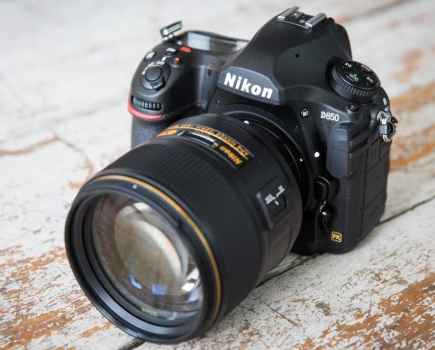Picture credit: Jason Sheldon / Junction10 Photography
As reported by Amateur Photographer (AP) earlier this year, the Patents County Court told photographer Jason Sheldon he was entitled to claim £5,682 in damages over an image published by Daybrook House Promotions Ltd without his consent, despite it having already appeared on a social networking website.
Daybrook has now agreed to pay Sheldon £20,000 in an out-of-court settlement, the photographer has told AP following a report by Editorial Photographers UK, which campaigns for photographers rights.
Sheldon
says that the ‘global settlement figure’ includes his legal costs.
Ahead
of the preliminary ruling, in May, the court was told how Daybrook published
Sheldon’s exclusive photo of US pop star Ke$sha (pictured above) as part of a poster-based
advertising campaign for events to be held at a Nottingham nightclub.
Daybrook
wrongly believed that it was free to use the photo as it had already been
published on Tumblr, a social networking website.
Reacting
to news of the payout, Sheldon told AP: ‘While, I am obviously pleased with the
overall outcome – especially as it helps to establish case law for when
creatives are left with no choice but to pursue unauthorised and unlicensed
uses of their works – I am disappointed it took such a long time to reach, and not without court intervention.’
The
case highlighted the perils of using photos of celebrities which have been
posted on social networking websites.
However,
it did not focus on whether Daybrook had breached copyright and the court did
not rule on this aspect.
The
photo – captured in Birmingham on 3 July 2011 after Sheldon obtained exclusive
backstage concert access – showed the singer lounging on a tour bus sofa
brandishing a bottle of champagne with members of rap duo LMFAO.
Sheldon
said he had not licensed Daybrook’s use of the photo and sent the firm an
invoice for £1,351 after it used the image last year.
However,
the firm offered the photographer a fee of just £150, which he rejected.
Daybrook
said it would not have used the photo had it realised it was not free to use.
After
the court ruling, a spokesman for Swan Turton, a media law firm, said the case
was noteworthy because it showed that the photographer was entitled to more
than the ‘few hundred pounds’ he was offered.
As
well as serving as a warning to those grabbing photos from the web for their
own use, it also highlighted the risks photographers face when posting online.
At
the time, lawyer Charles Swan told AP he believed there was ‘massive ignorance
out there and people often think that images posted online are free to use’.
Responding
to the settlement, Swan said today: ‘The case shows how persistence can pay off
for photographers when it comes to enforcing copyright, and how expensive it
can be for infringers if they don’t quickly settle out of court for a
reasonable amount.’
In
focusing on what constituted a reasonable royalty, the judge took into
consideration factors that ‘enhance’ the value of the photo, such as the renown
of the artist and the photographer’s ‘exclusivity of access’.
Sheldon
says that the time, stress and expense of bringing an action through the UK
courts can deter many photographers, especially those who are self-employed.
He told AP this morning: ‘That
said, I hope that other creatives take heart from my case and see that it is
possible to pursue and defend their rights in the works they create and,
equally, I hope this judgement might serve as a deterrent to those who may seek to
appropriate or unfairly exploit the hard work of others, or believe that
anything on the internet belongs in the public domain.’
At
the time of writing, Daybrook House Promotions had yet to respond to an emailed
request for comment.







